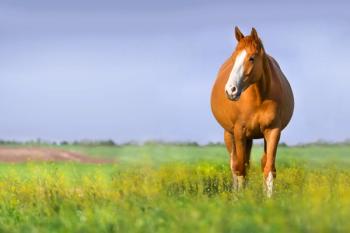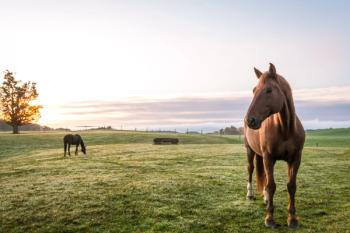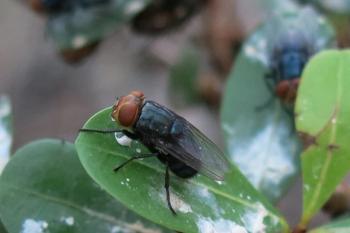
Equine welfare: UC-Davis plan calls for network of community shelters for horses
Davis, Calif. - A faculty organization at the University of California-Davis has come up with a proposal for dealing with unwanted horses and intends to create a template that communities anywhere in the country could follow.
DAVIS, CALIF. — A faculty organization at the University of California-Davis has come up with a proposal for dealing with unwanted horses and intends to create a template that communities anywhere in the country could follow.
A triage flow chart: A faculty group at the University of California-Davis came up with this diagram showing how unwanted horses could be handled much like dogs and cats are in animal shelters. They would be divided first according to whether they are adoptable.
Essentially, the plan is to create shelters that would deal with unwanted horses in much the same way that most animal shelters deal with unwanted cats and dogs.
The International Animal Welfare Training Institute (IAWTI), organized last spring, is part of the UC-Davis School of Veterinary Medicine and is directed by Dr. John Madigan, a professor and clinician at the Veterinary Medical Teaching Hospital. Its members include more than 20 faculty members who have projects and research aimed at improving animal welfare across all species, and it has international links in the areas of global emergency and disaster response.
"A significant portion of society views horses differently than livestock," Madigan says. "This suggests to us that something similar to a normal community animal-shelter program for small animals is needed for horses."
The IAWTI has started a pilot program with foundations in northern California that have started similar programs, and it expects to use those sites to create a template any community could follow.
"Horse-rehoming facilities or horse-assessment stations need to be licensed, certified, inspected and have in effect the components needed for housing, assessment, adoption, maintenance, veterinary care, licensing with county animal services, temperament assessment for adoption, humane euthanasia, an operating budget and so on," Madigan explains.
"We are working now to create that infrastructure template to share with other counties in California and other states."
The system the group envisions calls for an "unwanted horse assessment station" that first would triage any unwanted horses brought in, determining whether they are adoptable or non-adoptable.
If adoptable, they would be placed in one of four groups: rehabilitation required, immediately usable, needing permanent housing and retirement, or used for outreach education in equine care.
If un-adoptable, the animals would be designated either for humane euthanasia with carcass salvaged for zoo feeding, nutritional use for animals or rendering; or for humane euthanasia, with the carcass disposed by tissue digester, composting or cremation.
"Some current (horse) rescue facilities are over their heads with regard to costs and caring for animals long-term," Madigan says.
"We believe this approach will provide a means for people to take their healthy animals — which they can't keep — to a place where they may be adopted out (sold) as a person would obtain a dog or a cat from a shelter.
"Adoption, housing and humane euthanasia are needed for the magnitude of this problem and for the benefit of the horse, in our opinion."
The IAWTI is inviting several agencies this month to a meeting at UC-Davis to explore the implementation and funding of such a program. So far, representatives from UC-Davis, Animal Services, California Dept. of Food and Agriculture, the California Veterinary Medical Association, American Association of Equine Practitioners, Grace Foundation, California Horse Racing Board and the Humane Society of the United States are expected to attend.
Anyone wishing to support the effort can send donations to the IAWTI at UC-Davis, Madigan says.
Newsletter
From exam room tips to practice management insights, get trusted veterinary news delivered straight to your inbox—subscribe to dvm360.






